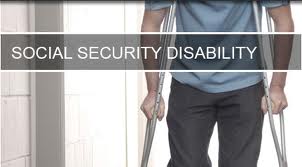What You Can Do about Late Appeals
 How long does it take to get disability benefits? A seasoned, skillful Massachusetts Social Security lawyer says late appeal filings from disability denials make the time take longer but are not necessarily fatal to a claim because the claimant may be able to show good cause for an untimely filing, especially if assisted and represented by competent counsel.
How long does it take to get disability benefits? A seasoned, skillful Massachusetts Social Security lawyer says late appeal filings from disability denials make the time take longer but are not necessarily fatal to a claim because the claimant may be able to show good cause for an untimely filing, especially if assisted and represented by competent counsel.
Examples of Good Cause
What can Social Security claimants do after missing appeal filing deadlines? Most start again and file new claims for disability benefits; however, in some cases, Social Security may accept appeals even though filed late.
Good Cause for Missing Appeal Deadlines
Social Security decides whether there was good cause for an untimely appeal filing by considering
- whether any circumstances prevented a timely filing,
- whether Social Security or the Centers for Medicare or Medicaid Services (CMS) did anything that confused or misled the claimant and caused the missed the deadline,
- whether the claimant understood what was needed, or
- whether the claimant had a physical, mental, educational, or language limitation preventing a timely appeal filing.
Social Security has published examples of circumstances where disability claimants had good and excusable causes for late appeals. The list is not exhaustive. If the reason for a missed deadline is not on it, Social Security still can find good cause. The examples just show how serious the circumstances must be for the finding. Social Security may find good cause in any of the following circumstances:
- The claimant was very sick when the appeal was due and could not contact Social Security directly or through anyone else. Claimants need to show serious sickness, or Social Security will find that they could have filed the appeal on time or asked someone to do it for them.
- There was a death or serious sickness in the claimant’s immediate family.
- Fire or another mishap close in time to the appeal deadline destroyed records necessary for the appeal and important to meeting the deadline. For example, if the claimant’s house burned down the week before the deadline with the denial notice inside, there would be a strong argument for good cause for missing the deadline.
- The claimant actively looked for additional evidence to support the claim but failed to request an extension of time before the deadline passed.
- The claimant asked Social Security for more information about the denial before the appeal deadline passed. Then there would be 60 days after Social Security provided the requested additional information to file for reconsideration or for an appeal.
- Social Security or CMS provided incorrect or confusing misinformation about appealing the claim denial.
- The claimant did not understand the requirement to file an appeal by the deadline or was unable to appeal on time because of a physical or mental problem.
- The claimant did not receive notice of a denial. Proof of non-receipt is necessary. For example, if Social Security sends the notice to the wrong address after the claimant provides the correct address, there may be good cause for a late appeal.
- The claimant misunderstands the need to send the appeal filing to Social Security, sends it to another government agency within the time limit, and the recipient agency does not forward it before the deadline.
- Any other unusual or unavoidable circumstances that make unreasonable any expectation for the claimant to meet the deadline.
Usually, the later the appeal, the harder for the claimant to show good cause. For instance, if the claimant has a heart attack and is hospitalized for two weeks around the time of the appeal deadline, there will be no good cause for an appeal filing a year late.
How to Request Acceptance of a Late Appeal
Requests to accept late appeals must be in writing. Usually, claimants submit their appeal forms and then explain why there is good cause on the forms or on separate submissions at the same time.
Social Security must accept the appeal no matter how late. Social Security then has an obligation to consider the explanation to see whether it amounts to a good reason for filing late. The agency may contact the claimant for more information.
Even if Social Security finds no good cause for a late appeal, it sometimes deems the date of submission of the written request to accept late appeal filing as a protective filing date for the claimant’s next application for benefits.
Consult a Massachusetts Social Security Lawyer
The claim examination process can be slow and arduous. Most claimants find the regulations and procedures complex and confusing. Fortunately, we can offer expert assistance and representation in Social Security disability claims for benefits to individuals with long-term disabilities.
How long does it take to get disability? Usually too long but the most important advice a Social Security lawyer can give is not to quit after denial of a claim. Unfortunately, many worthy claimants make this mistake. Instead, they need to appeal until they get a hearing before an administrative law judge. Recent statistics show that only 22 percent of claimants for back injuries obtained benefits on their initial applications, but 70 percent of those who appealed ultimately prevailed on their claims.
Social Security disability evaluators tend to emphasize the importance of medical records, which are not always fully informative about the severity of a claimant’s symptoms. At a hearing with assistance and representation of a Massachusetts Social Security lawyer, the claimant has the best opportunity to explain to the administrative law judge all the ways the disability denies opportunity to work.
Potential clients are often concerned about legal fees. At the Palma Law Offices, fees are contingent on winning the claim. No fee is ever due unless and until clients succeed in recovering retroactive benefits. The usual fee is 25 percent of the past-due benefits awarded on the claim. No fee comes out of the regular monthly payments. A better investment is hard to imagine. Call (978) 970-2211 or (888) 295-4955 today to schedule a free consultation.


 Even though many claimants
Even though many claimants  How long does it take to get disability benefits
How long does it take to get disability benefits